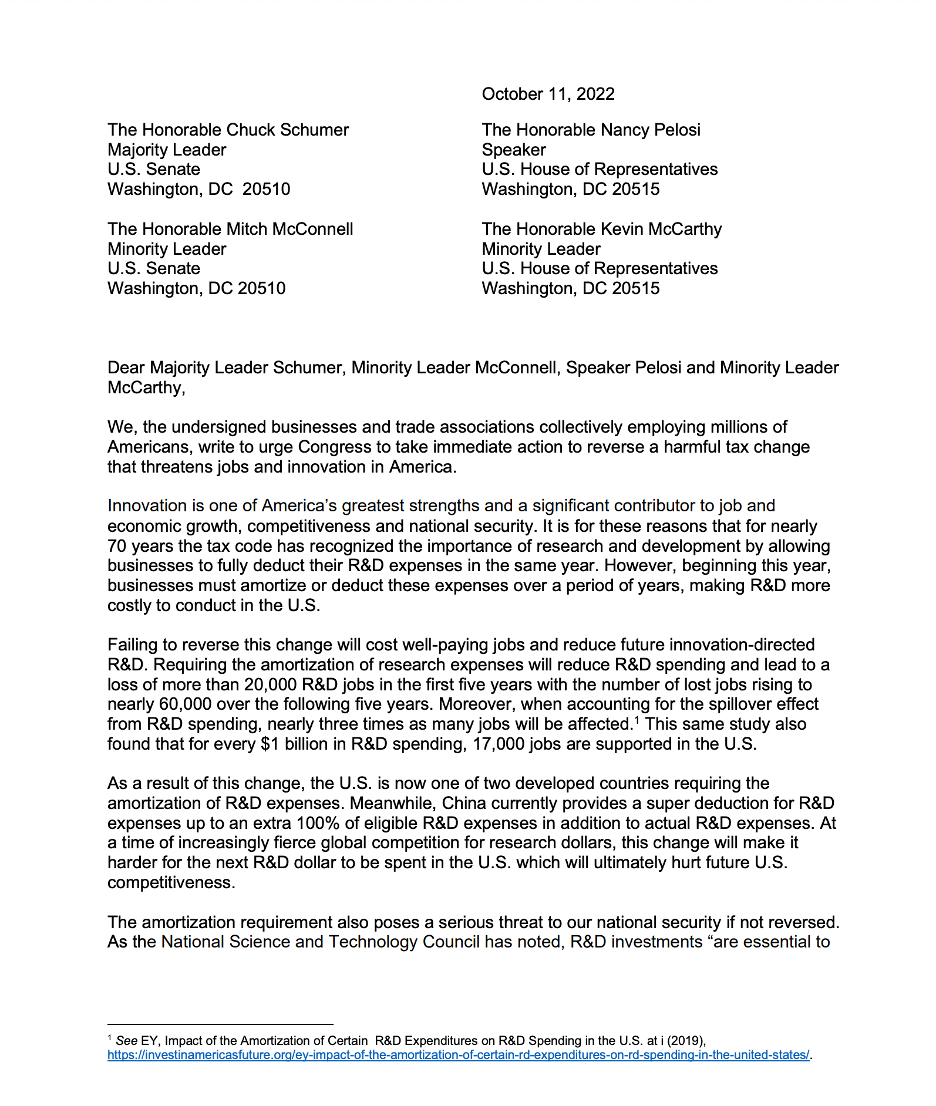News
RDCC Joins in Call for Repeal of R&D Tax Policy that Hurts Rare Disease Innovation
Research and development (R&D) is at the heart of rare disease innovation. Due to the complex nature of rare diseases, a comparatively higher percentage of operating expenses is dedicated to R&D for the over 95% of rare diseases without an FDA-approved treatment.
In 2021, our 21 Coalition members alone invested more than $12 billion into R&D, representing on average over half of their annual budgets. In addition, many of our members with products on the market are continuing to spend more on R&D than they make in revenue, investing profits back into future treatment development. The result of these endeavors have built a remarkable hub of innovation, growth and investment across life science companies.
However, a harmful tax change that if not reversed, will hurt rare disease companies’ ability to advance lifesaving innovation while limiting additional job creation and development here in the United States. Up until January 2022, a business in the United States could deduct 100% of their R&D expenses in the year during which those expenses incurred.
Now, a change in the tax code that took effect this year requires businesses to spread those deductions over a period of years—the so-called amortization requirement—making investment in innovation more expensive to conduct.
This week, RDCC joined over 400 organizations across the greater business community to urge Congress to repeal this harmful tax change. Doing so is vital to ensure that rare disease companies can continue to innovate, advance continued and ambitious research and development programs, and bring treatments to patients. On the cusp of significant breakthroughs in molecular, cell and gene therapy advancements, we must continue to support medical innovation taking place at rare disease companies to support delivery of life-altering treatments to rare disease patients.
Read the full letter to Congressional leadership here.
